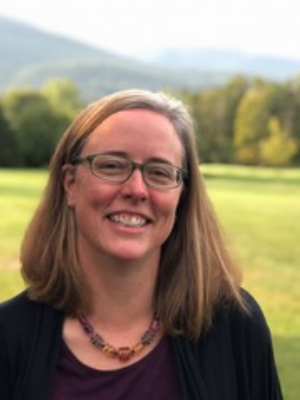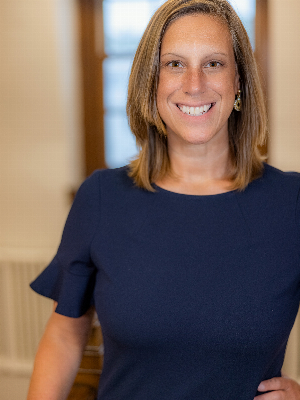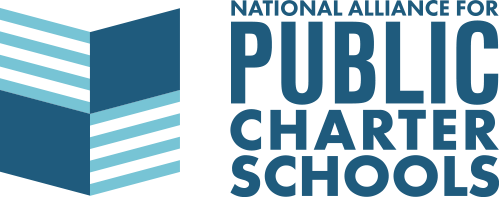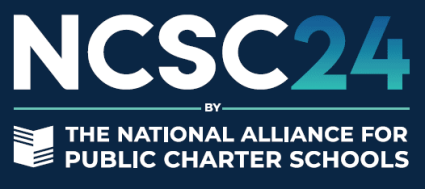Building a Culture of Accountability to Lead Through Change
Building a Culture of Accountability to Lead Through Change
,
BCEC, Meeting Room 102AB
Leading school change requires envisioning a future, setting goals, and creating systems and structures to meet those goals. For change to stick, it is important to do this work collectively, honestly, and with vulnerability. A culture of accountability is one where an organization remains focused on the future, teams embrace failure as an opportunity to learn and grow, employees feel empowered to identify new ways to move towards a vision, and all voices are heard. A culture of accountability is key to leading through change, yet can be incredibly difficult to build. Join former charter school founder and leader, Julia Bowen, PCC, MAOD—now a leadership coach and consultant—for a discussion with three current leaders who have built cultures of accountability in their schools to create the conditions for students to thrive. Attendees will leave inspired to develop or build upon their own cultures of accountability.
Fireside Chat
Lead
Leadership
Participants will learn that good accountability is essential for change. Accountability is not something that should be feared, but should be empowering, strategic, supportive, and collaborative.
Participants will understand that a culture of accountability is the collection of systems, processes, behaviors, and mindsets that enable an organization to do more of what’s working and less of what’s not. Perfection is not the goal. The goal is to cause progress.
Participants will understand that the most important job of a leader is to create a culture of accountability in their school, district, or network. A leader does this by being personally accountable for creating the systems and processes, modeling the needed behaviors and mindsets, and inspiring others to do the same.
Scroll down to view handouts.
Presenters

Executive Director
KIPP Massachusetts
Nikki joined the KIPP MA Team and Family in 2013 as a 6th grade humanities teacher at KIPP Academy Boston Middle School. Nikki has spent her professional career teaching in and advocating for public schools. She has over 20 years of classroom experience in elementary, middle and high school.

Principal
Prospect Leadership Group
Julia Bowen partners with leaders and school districts who seek to grow their impact and the impact of their organizations. She has a passion for empowering leaders to build on their strengths and vision to create more effective leadership teams, inclusive school communities, and transformative learning environments. Through Prospect Leadership Group, she supports a variety of leader and district needs, including leadership coaching, organizational consulting, board development, and strategic planning. She has a special interest in supporting school leaders new to their roles. Since 2018, she has been developing and leading the New Leaders Program for the Massachusetts Charter Public School Association, a program that has served over 55 new charter school leaders during the first three years of their job as Executive Director. Building on a background in both strategy consulting and teaching high school, Julia was the founding Executive Director of Berkshire Arts & Technology Charter Public School (BART) in Adams, Massachusetts in 2003, where she led the growth of the nationally recognized middle and high school that serves 360 students from 15 different communities. Under her leadership, BART built a program that attracted a more diverse student body than the local sending districts across multiple dimensions - race, gender identity, socio-economic status, and diverse learning needs - with stronger academic and college placement results than the local districts as well. During her tenure, BART was named among the top high schools in Massachusetts by US News and World Report and was recognized by EPIC, a program funded by the US DOE’s Teacher Incentive Fund, for achieving significant growth in student outcomes. Julia left BART in 2017, but returned as a parent in 2020, when her two sons enrolled in the middle school. Julia has served on a number of local and statewide boards and committees, supporting k-14 education broadly and charter schools specifically. Currently, she is the Chair of the Board of Trustees at Berkshire Community College in Pittsfield, MA, and a School Committee Member for her local district public school, Mt Greylock Regional School District. She earned a BA from Dartmouth College in Mathematics, an MA in Organizational Development and Leadership from Fielding Graduate University, certification from Cornell University in Diversity and Inclusion, and is a Professional Certified Coach (PCC) through the International Coaching Federation (ICF). She also earned certification as a mediator through Mediation Works, Inc., as an evaluator of the Leadership Circle Profile, and as a Critical Friends Coach through the National School Reform Faculty.


Executive Director
Boston Collegiate Charter School
Jenna Ogundipe, Executive Director, joined Boston Collegiate in 2002. She has taught history to grades six through eight, served as History Department Co-Chair, Dean of Administration, High School Principal, and Chief Academic Officer. Before coming to Boston Collegiate, Jenna taught history at the Metropolitan Treatment Center in Roslindale.
Fireside Chat
Lead
Leadership
Participants will learn that good accountability is essential for change. Accountability is not something that should be feared, but should be empowering, strategic, supportive, and collaborative.
Participants will understand that a culture of accountability is the collection of systems, processes, behaviors, and mindsets that enable an organization to do more of what’s working and less of what’s not. Perfection is not the goal. The goal is to cause progress.
Participants will understand that the most important job of a leader is to create a culture of accountability in their school, district, or network. A leader does this by being personally accountable for creating the systems and processes, modeling the needed behaviors and mindsets, and inspiring others to do the same.
Scroll down to view handouts.

